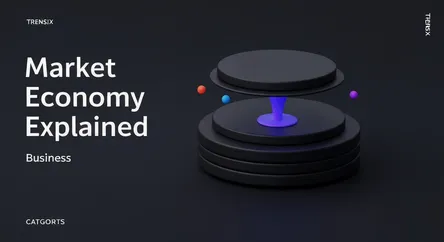Business
Market Economy Explained

Discover what a market economy is, how supply and demand drive it, and its direct impact on your daily financial life, from prices to jobs.
What is it?
A market economy is an economic system where two forces, known as supply and demand, direct the production of goods and services. Decisions on investment and production are based on voluntary exchanges in the marketplace, rather than being controlled by a central authority. In this system, businesses and individuals own the factors of production and are free to buy, sell, and produce what they choose. This competition among producers is believed to foster innovation and efficiency, as businesses strive to offer better products at lower prices to attract consumers.
Why is it trending?
Discussions around market economies are perpetually relevant due to ongoing debates about economic policy, inflation, and global trade. The rise of the gig economy and digital marketplaces has also brought new dimensions to how market forces operate. Recent global events, from supply chain disruptions to shifts in energy prices, have highlighted the interconnectedness and volatility of market-based systems, keeping the topic at the forefront of financial and political news as governments and consumers navigate its effects.
How does it affect people?
A market economy directly influences daily life by determining the prices of everything from groceries to housing. It affects job availability, wages, and the variety of choices available to consumers. While it can create opportunities for wealth and innovation, it can also lead to significant income inequality and market failures, such as environmental damage or monopolies. For individuals, it means navigating a dynamic environment where financial success often depends on adapting to market changes, making informed consumer choices, and understanding economic trends.